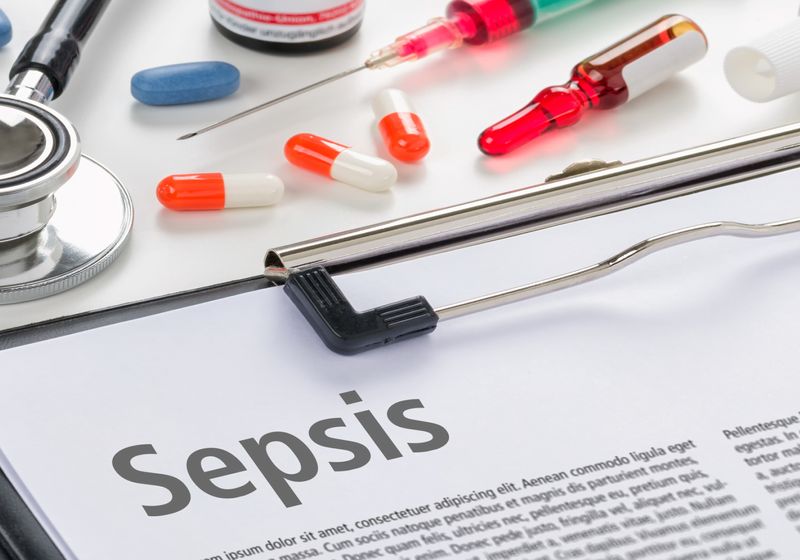A novel approach to sepsis may come from a common antidepressant
©istock, Zerbor
Sepsis is a hyperreactive immune response following an infection; it can cause organ damage and even death. In 2020, sepsis killed 11 million people. Despite decades of trials involving interventions to target the inflammatory response, none have yielded significant success in reducing sepsis mortality.
However, observational studies of sepsis risk in different patient populations could help guide the development of new treatments. For example, studies reported that patients taking selective serotonin reuptake inhibitors (SSRIs) had a lower risk of severe COVID-19 infection and related sepsis.1,2 While SSRIs increase the availability of serotonin in the brain, they also have anti-inflammatory properties in both the brain and periphery, as well as significant effects on the immune system and metabolism.3-5 The underlying mechanisms of these effects, though, remain unclear.
In a study published in Science Advances, a team of researchers showed that the SSRI fluoxetine increased serum levels of interleukin-10 (IL-10), an anti-inflammatory cytokine, independently of its effects on serotonin.6 This IL-10 elevation improved metabolic responses in the heart, which is often damaged during sepsis, and increased survival in a mouse model of this disease. These findings reveal that SSRIs have important effects on tissues beyond the brain and suggest potential routes for using these drugs as prophylactic medications against sepsis.
Robert Gallant, currently an immunologist and postdoctoral researcher at the International AIDS Vaccine Initiative (IAVI) and a study coauthor, started his graduate research in Janelle Ayres’s group at the Salk Institute by studying the role of serotonin in sepsis. He used fluoxetine as a tool to reduce the amount of the neurotransmitter in the periphery and initiated sepsis in the animals by injecting a combination of Escherichia coli and Staphylococcus aureus.
Gallant found improved survival in mice treated with the SSRI but was surprised to discover that this effect persisted even in serotonin-deficient mice. “At first I thought I messed [the experiment] up,” he recalled. However, after repeating the study, he confirmed that the SSRI was protecting mice against sepsis independently of its effect on the neurotransmitter. He pivoted his project to study this serotonin-independent effect on the immune system.
The team observed that pretreatment with fluoxetine reduced the amount of bacteria present in septic mice. Additionally, fluoxetine also protected mice from sepsis-induced morbidity, like decreased roaming and grooming. While this SSRI demonstrated direct bacterial killing, the researchers showed that this protection against sepsis happened even when the condition was caused by injecting heat-killed bacteria. This indicated to the researchers that the SSRI affected the host immune response, and not just the bacteria.
While blocking IL-10 reversed the protection of fluoxetine in septic mice, the researchers observed that treating mice with exogenous IL-10 did not yield the same protection. This led Gallant to suspect that fluoxetine may prime the immune system to be more resistant to sepsis. “The IL-10 needs to be produced by the right immune cells in the right place, at the right level—at least, that’s how we interpreted it—in order to thread that needle and get that balance.”
However, Gallant said, “At the end of the day you die because your heart stops. You don’t die because your immune cells are producing a lot of IL-6.”
Therefore, the team turned their attention to the impact of these immune perturbations on vital organ function, and whether fluoxetine could ameliorate these effects. Because heart failure is a major cause of death in sepsis, the team focused on this organ. Normally, the heart predominantly uses fatty acid oxidation as an energy source. Although the metabolism of these lipids was not affected by sepsis, the team observed that sepsis elevated circulating triglyceride levels and increased the deposition of these in the heart, which causes toxicity.7 Fluoxetine prevented an increase in circulating triglycerides and thus lipid accumulation in the heart.
To explore this further, the team showed that SSRI-treated animals had increased transcription in their livers of genes responsible for lipid uptake, and these mice also removed injected lipids from their bloodstreams better than vehicle-treated mice. Furthermore, they found that triglyceride uptake was necessary for the observed protection against sepsis.
The researchers then explored whether the increased IL-10 and triglyceride uptake were linked. Blocking triglyceride uptake decreased IL-10 production from some immune cells but not the majority of these populations nor did it affect the amount of IL-10 in the serum in the early post-infection period. However, infected IL-10 knockout animals experienced increased triglyceride levels even with fluoxetine treatment. Thus, the improved lipid tolerance, and in turn the cardiac protection against triglyceride build-up, during sepsis in fluoxetine-treated mice was dependent on IL-10.
Xiaohui Wang, a biomedical scientist studying sepsis and metabolic reprogramming at East Tennessee State University who was not involved with the study, said that the involvement of IL-10 in metabolism during sepsis was interesting. He was especially interested in the effect of the SSRI on protecting the heart through metabolic reprogramming. “For the sepsis treatment, I think the act of metabolism changing is a new direction for sepsis research,” he said.
Gallant pointed out that one limitation to the study was that the team’s infection model caused very rapid onset of sepsis, and that he used a relatively high dose of fluoxetine. He said that exploring the effects in a more physiological model could offer more translational relevance. However, even in a model where the SSRI still must be given before the onset of sepsis, Gallant said that this could offer clinical benefit as a prophylactic intervention, like in the case of high-risk surgeries, where antibiotics are already given in advance.



